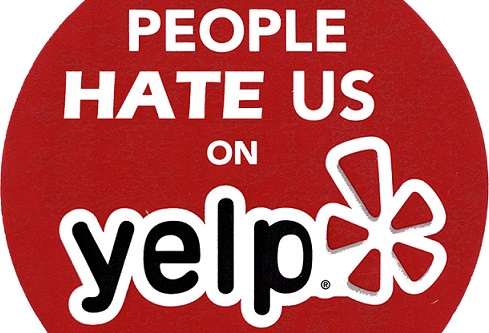
So, for local small businesses, it’s all about getting phone calls, right? Usually. Most of the time. But not always. Generating sales leads is phenomenal. It’s absolutely a good thing. But what happens if these calls don’t translate into the client increasing their sales? The answer: the calls are worthless. The client looks for other marketing options. So how can you make it likely your leads will be of good quality?
Your Online Reputation Is Most Important
Almost every client I talk to, I try and make them aware of the report put out by Pew Research last September. The big headline is that 58% of Americans say that before they purchase products or a service, they do online research. In other words, they go to Google and type in your client’s company name. And you better hope that what shows up on the first page reflects the client in a good or neutral way. What good is getting somebody phone calls, if the potential customer googles your client and gets scared off by negative comments?
This is why every company doing internet marketing needs to be doing reputation management. Removing negative stuff from the first page of Google when someone types in your client’s name takes just as much time to get them ranked for competitive keywords organically. Generally speaking, it’s nice when almost all the results that show up on the first page for the company name are websites where you can control the content. This insures the client won’t lose business if the website visitor does a little digging.
(Shameless plug: For anyone interested in help with their reputation management, check out www.customwave.net)
Why You Want To Be Seen As A Guru
I got to find time to write a blog post on how to really use Facebook for small businesses. It’s really misunderstood. But relating to this topic, it’s important to put out an image that you’re an authority in your industry. Especially locally. Similar to what i was mention with reputation management, people will do online research on your company. And if you post regularly on Facebook, or your blog, or other websites, most people will percieve you to be an expert. Obviously, if someone who calls you or is considering calling you is on the fence, this is the type of thing that can tip people in your favor. How many of your client’s competitors have an online image of being an authority? Not many.
This is, in my opinion, the #1 benefit of social networks and blogging. It’s not something you can track or quantify, but definitely something that’s important to focus on. If you can take a few calls a month from people who ordinarily wouldn’t have done business with you, but do because of your guru-ness, it absolutely rewards your effort.
Source Traffic and Targeting
Before the phone call happens, before the website visitor reaches the client’s website, the website visitors originates from some place. You need to make sure that that some place is a traffic source that converts. Google would be an obvious source of good quality, thus explaining why so many internet marketers use it.
But for you others who use affiliate networks, social networks, and other random sources, you need to be able to measure the conversion. In other words, if the client wants sales, you need to track whether or not source A’s traffic is converting into sales. Without that knowledge, you’ll keep spending money on traffic that could be worthless to your client for all you know. I know, this sounds obvious, but you’d be amazed by how many people don’t test and measure like this. It’s called laziness ; )
For people who are doing pay per click, your keyword targeting needs to be right on. It’s critical to test and figure out which keywords are generating the client’s goals and which aren’t. Without knowing this, you’re going to flushing perfectly good money down the toilet.
Read More




